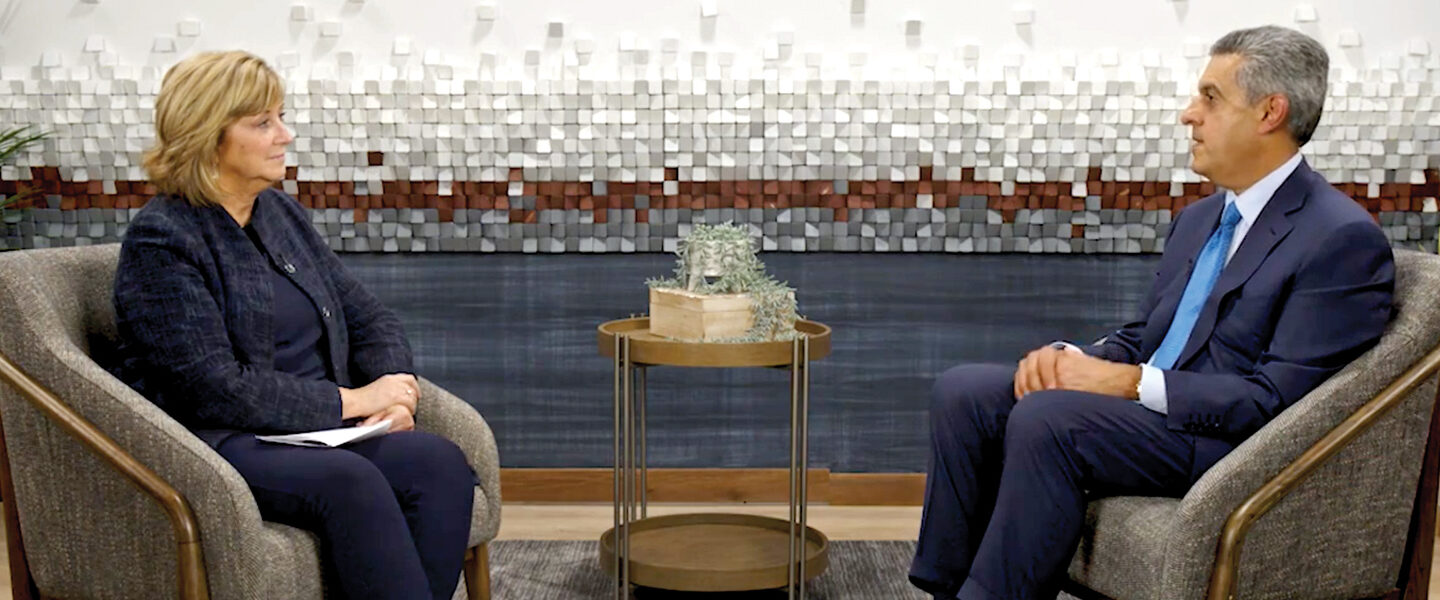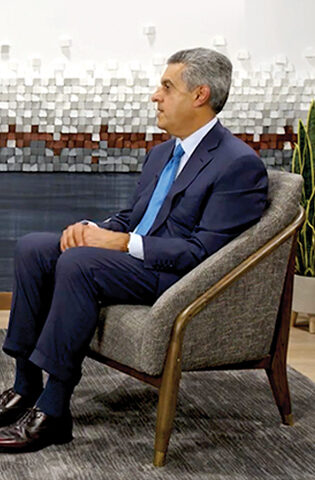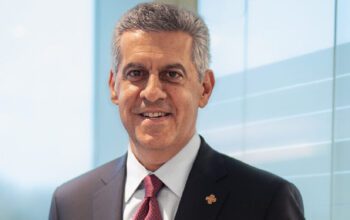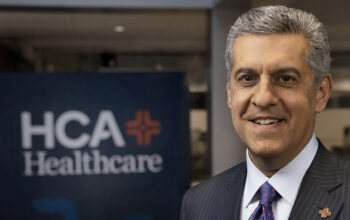In the spring of 2023, HCA Healthcare Senior Vice President of Marketing and Corporate Affairs Deb Reiner sat down with CEO Sam Hazen for a candid conversation about the extraordinary year we have all been through — and where we can set our sights for the future.


Watch their conversation here:
Deb: We are coming up on the three-year anniversary of COVID first coming to the United States and to our hospitals. I’ve heard you [talk] a few times about the aftermath of COVID. What exactly do you mean by that?
Sam: For our industry and for our company specifically, we’ve had some major events that have developed as a result of [COVID-19]. The first is clearly we have our own supply chain shock, as I like to say. The labor market has been incredibly disrupted during this time period, and it’s created a lot of pressures on our organization.
The second thing that’s happened as a result of the pandemic, in my estimation, is inflation. Our company has not had to deal with inflation since the early 2000s. But the third thing, which is positive, is there’s a lot of demand still for healthcare, and our opportunity is to figure out how to resolve our labor situation, navigate through inflation, and really serve the demand that’s needed by our patients and our communities.
Deb: One of those longer-term parallel issues is the labor shortage. We really feel it in our nursing and our clinical, but we’re seeing it in all areas. What did HCA Healthcare put in place to help address those?
Sam: We’ve approached it with four major initiatives. One was how do we increase the capabilities for recruitment in our company? We have almost doubled the capacity of our recruiting function. We’re starting to see success with recruiting and hiring more people. It’s not just nurses, its techs. Its administrative personnel.
The second thing is something around retention. I’m really encouraged, again, by the efforts across the company to improve our retention. We’ve invested in compensation programs. We’ve adjusted benefits in certain situations. We’ve tried to respond to the needs of our employees in a way that allows them to be successful and feel good about what they do.
The third thing for us is something we’re calling capacity management. If we can manage our capacity and our throughput effectively, we can lessen the burden on our workforce, and I think that’s had a positive impact as well.
And then the last area, and it’s an area I’m really excited about, is something we’re calling alternative models of care or advanced models of care. And by that, I mean, how do we use different skill mix? So we’re bringing LPNs back into the mix of how we staff our facilities. We’re using paramedics in the emergency room to help our emergency room nurses deal with the flow of patients in our emergency rooms. So really getting creative around different models, different mix of workforce. I’m really encouraged by what our teams have done and where I think it’s positioned us as we continue moving.
Deb: You’ve alluded to this a couple of times in our conversation – how we show up for our communities, whether that be during COVID-19, during a natural disaster, during a human made disaster. And it’s kind of become a mantra for our employees. We show up. What does it mean to you personally?
Sam: We have a sacred responsibility [as a part of the] community infrastructure. You can be a first responder — that’s community infrastructure. Utilities are a community infrastructure. Healthcare systems are community infrastructures, and there’s a sacred responsibility that comes with that, to be there for the community when the community needs you.
So during the early part of the pandemic, I made a comment that we all signed up for this. I didn’t necessarily want to deal with a pandemic. I know our caregivers didn’t, our physicians didn’t. And there were a lot of anxieties in parts of our organization that I’d never seen before. But we all rolled our sleeves up; we went to work; and we took care of people in need. We took care of our communities, we took care of our organization. And to me, that’s what we show up means. We showed up when others needed us, we did it in the right way, and I think we delivered results that are very positive.
Watch the conversation in its entirety to hear more.


